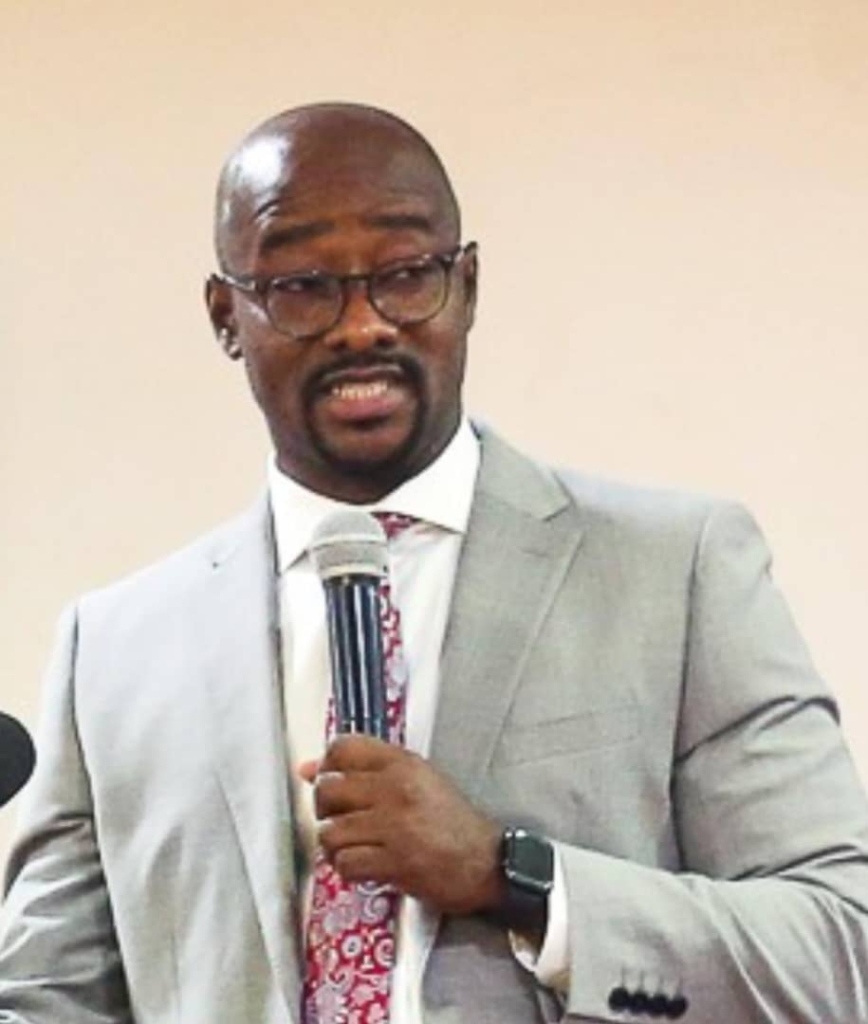
Bernard Ohemeng-Baah, Ag. Deputy Commissioner of Insurance, National Insurance Commission.
Executive Summary
Ghana’s newly launched 24-Hour Economy policy is an ambitious stride towards national transformation. It promises jobs, increased productivity, and enhanced competitiveness of Ghanaian industry. Yet beneath the promise of bright city lights and round-the-clock activity lies an often-overlooked enabler: insurance.
From maritime trade in the 17th century to the rise of modern aviation, insurance has quietly backstopped human progress. This write-up explores the preparedness of Ghana’s insurance sector to play a catalytic role in the 24-Hour Economy, drawing lessons from global exemplars and prescribing key imperatives for various players in the insurance ecosystem.
If Ghana’s economy is to run round-the-clock, the insurance sector must remain wide awake.
Introduction
Policies that encourage round-the-clock economic activity trace as far back as the Roman Empire, by some accounts. In those years, deliveries of goods by horse-drawn vehicles were restricted to the nights to reduce traffic during the day. The timeliness of policies to promote non-stop work and production cycles today is strongly influenced by a combination of factors: shifts in economic activity in favour of services whose demand runs all day and night, the availability and falling costs of technologies to support round-the-clock production, and changes in population and demographic patterns.
Ghana’s 24-Hour Economy blueprint reimagines national productivity and proposes to enable businesses, services, and institutions to operate beyond traditional working hours. The policy articulates a vision with transformative potential – one that promises new jobs, thriving local industries, export growth, and a more competitive economic landscape.
But history tells us a humbling fact: no society has prospered economically without insuring against the risk of everything going down by a disaster. When adventurous entrepreneurs pooled their resources at Lloyd’s Coffee House in 17th-century London, maritime trade blossomed, and the world’s oceans became alive with commerce. Fire insurance fueled the Industrial Revolution, giving factory owners the confidence to grow. The business of aviation gained momentum only after insurers found ways to price the risks of flight. The digital economy today is propped up on cyber insurance, which quietly protects trillions of dollars’ worth of virtual transactions.
This write-up draws lessons from history and the experience of other economies in examining the role of insurance in Ghana’s 24-Hour Economic model, and the readiness of Ghana’s insurance sector to safeguard the country’s imminent economic boom.
Understanding the Impact of Insurance in a Modern Economy
Beyond its familiar role of paying claims and compensating for losses, insurance plays a far more expansive and quietly powerful role in shaping the modern economy.
Insurers have become a powerful transmitter of societal preferences in their pricing decisions and the allocation of capacity to certain activities while withholding from others. For instance, when insurance companies offer lower premiums to businesses that adopt environmentally sustainable practices, they reinforce society’s commitment to a cleaner future.
In this way, insurers quietly steer choices in ways that align with broader national and global goals. Recently, the National Insurance Commission, in collaboration with its partners, is exploring premium subsidies to enable the growth of agriculture insurance coverage in line with the Feed Ghana Programme (FGP) and the broader Agriculture for Economic Transformation (AETA) agenda.
Another interesting dimension is insurance’s role in capitalising the new economy. Insurance has the unique ability to accumulate long-term funds due to the time horizons of insurance contracts. These funds are channelled into banks and capital markets to provide liquidity for lending to businesses or to invest in infrastructure projects. In the context of Ghana’s 24-Hour economy, this quiet creation and deployment of capital by the insurance sector may well be one of its most significant contributions.
Additionally, insurance is an increasingly important engine of employment and skill development. The sector directly employs thousands of Ghanaians in underwriting, actuarial functions, claims management, compliance, marketing, and ICT. It supports many more through agency networks and vendor relationships.
With the National Insurance Commission pursuing policies to double insurance penetration over the next three years, the sector’s potential to create jobs and deepen technical expertise will grow in leaps and bounds in line with the vision.
Global Perspectives: Insurance in 24-Hour Economies
Below, I highlight a few examples of how insurers have risen to the occasion to provide coverage for non-stop economies.
New York City
Known as “the city that never sleeps,” New York thrives on industries operating around the clock. Insurers have models to underwrite late-night subway operations, 24/7 logistics and trucking, and the vibrant hospitality sector. Employers’ liability insurance adapts to shift-based risks, while nightlife establishments maintain tailored covers for extended hours, crowd exposures, and public liability.
Tokyo
Tokyo’s 24-hour trains, convenience stores, and manufacturing lines operate under insurance frameworks recognising unique nocturnal risks – from fatigue-related accidents to increased cyber vulnerabilities in automated factories. Liability policies, workers’ compensation, and property insurance are tailored for such realities.
Singapore
Singapore’s night economy has spurred microinsurance innovations for gig workers. Delivery riders, cleaners, and ride-hailing drivers working late hours have access to on-demand personal accident and liability coverage via digital platforms. This ensures that economic expansion is matched by social protection. Ghana can learn valuable lessons from these economies, whose insurance industries have adapted to provide financial security for sectors that run nonstop.
The Ghanaian Context: Gaps and Opportunities
Insurance penetration in Ghana (net of private health insurance) remains barely 1% and is concentrated largely in motor, fire, and traditional life products. The 24-Hour Economy will rapidly intensify risk exposures in certain operations: Transport & Logistics from increased night trucking, intra-city delivery, and warehousing; Retail & Hospitality as restaurants, markets, malls, and nightlife establishments stay open till late; Manufacturing & Warehousing as shift work expands beyond day hours to maximize productivity; and Healthcare & Emergency Services with the need for hospitals, ambulances, and essential services to operate round-the-clock to respond to emergencies.
Most insurance policies are designed, priced, and supported with the assumption that business happens between 8 am and 5 pm. As Ghana moves toward a 24-hour economy, this mismatch will become more visible. Many of the people and businesses who will operate through the night will face greater exposure to risks they may not have adequate data to aid pricing and regulatory approvals. Claims teams may not be reachable when incidents happen after hours, and support systems may not be designed for round-the-clock use cases. Yet herein lies opportunity: to reimagine insurance as an active driver of Ghana’s 24-Hour Economy.
What will it take for the insurance ecosystem to fully align with the demands of a 24-hour economy? I offer a few suggestions on the roles key stakeholders must assume to contribute meaningfully.
Policy Imperatives for the Insurance Sector
Regulatory Agility
The National Insurance Commission (NIC) must embrace adaptive regulation, approving innovative products faster and reimagining the regulatory sandbox. Rather than time-based cohorts, the sandbox environment should become an avenue for insurers and innovators to test covers suited to the night economy on a flexible basis. Supervisory models should evolve to capture dynamic risks while protecting consumers.
Product Development Innovation
Insurers must pivot from passive risk transfer to proactive risk solutions that address the peculiar needs of operators in the 24-Hour economy. Operators in what is called the gig economy (freelancers, riders, and contract workers with irregular night shifts) may require on-demand accident and liability insurance; businesses operating extended hours will call for specialised liability and property insurances; SMEs transacting digitally at all hours may face elevated breach risks during off-peak staffing times, calling for micro-cyber risk insurances.
Claims Responsiveness
An economy operating 24/7 will be set back by claims centres that close at 5 pm. Digital claims platforms, AI assessments, and round-the-clock emergency partnerships are now necessities to maintain public confidence in insurance.
Capital Adequacy and Reinsurance Structures
Reinsurers must be open to recalibrating treaties to support new nocturnal covers, while facultative reinsurance may be required for high-value night-time operations like logistics hubs and continuous production facilities. Closer collaboration between insurers and supervisors will become important to understand the impact of the potential aggregation of new risks on insurer capital.
Role of Key Stakeholders
First, the National Insurance Commission (NIC) must become a champion of insurance as an enabler in the national 24-Hour Economy discourse. The NIC must additionally demonstrate enabling leadership by developing supervisory frameworks that are attuned to the unique risk dynamics of night-time operations and responsive to the evolving needs of insurers as they navigate the complexities of the 24-hour economy.
The Ghana insurance sector has provided a resilient backbone for the country’s economy for 100 years. Companies must now accelerate the digitalisation of vital functions and investments in actuarial research to enable proper development and pricing of nocturnal risks.
As I indicated earlier, reinsurance Companies must provide flexible treaty structures for new and emerging risks. Reinsurers can help with the development of local underwriting capacity by sharing global expertise on insuring extended operational exposures.
Brokers and Agents must collaborate with the marketing departments of insurance companies to educate businesses on new risk realities and coverage options. Additional effort can go into gathering useful data to enable the development of relevant products for the informal and gig sectors. Labour Unions have a role to play in advocating for comprehensive insurance for workers.
Insurance for the 24-Hour economy will be anchored on digitalisation (automation and AI), training of underwriters and brokers on nocturnal risk modelling, pooled Public-Private Partnership solutions for high-risk sectors, and coherent regulation that aligns with the country’s economic objectives.
Conclusion
Insurance has conventionally been seen as a safety net that keeps people from crashing financially when unfortunate events occur. It is time for the insurance sector, government, labour, and industry to begin having forward-looking conversations on how insurance can serve as the trampoline that helps businesses bounce back quickly so the wheels of productivity can keep rolling in the 24-Hour Economy.
–
About the author:
Bernard Ohemeng-Baah (Ag. Deputy Commissioner of Insurance, National Insurance Commission)
DISCLAIMER: The Views, Comments, Opinions, Contributions and Statements made by Readers and Contributors on this platform do not necessarily represent the views or policy of Multimedia Group Limited.
DISCLAIMER: The Views, Comments, Opinions, Contributions and Statements made by Readers and Contributors on this platform do not necessarily represent the views or policy of Multimedia Group Limited.


